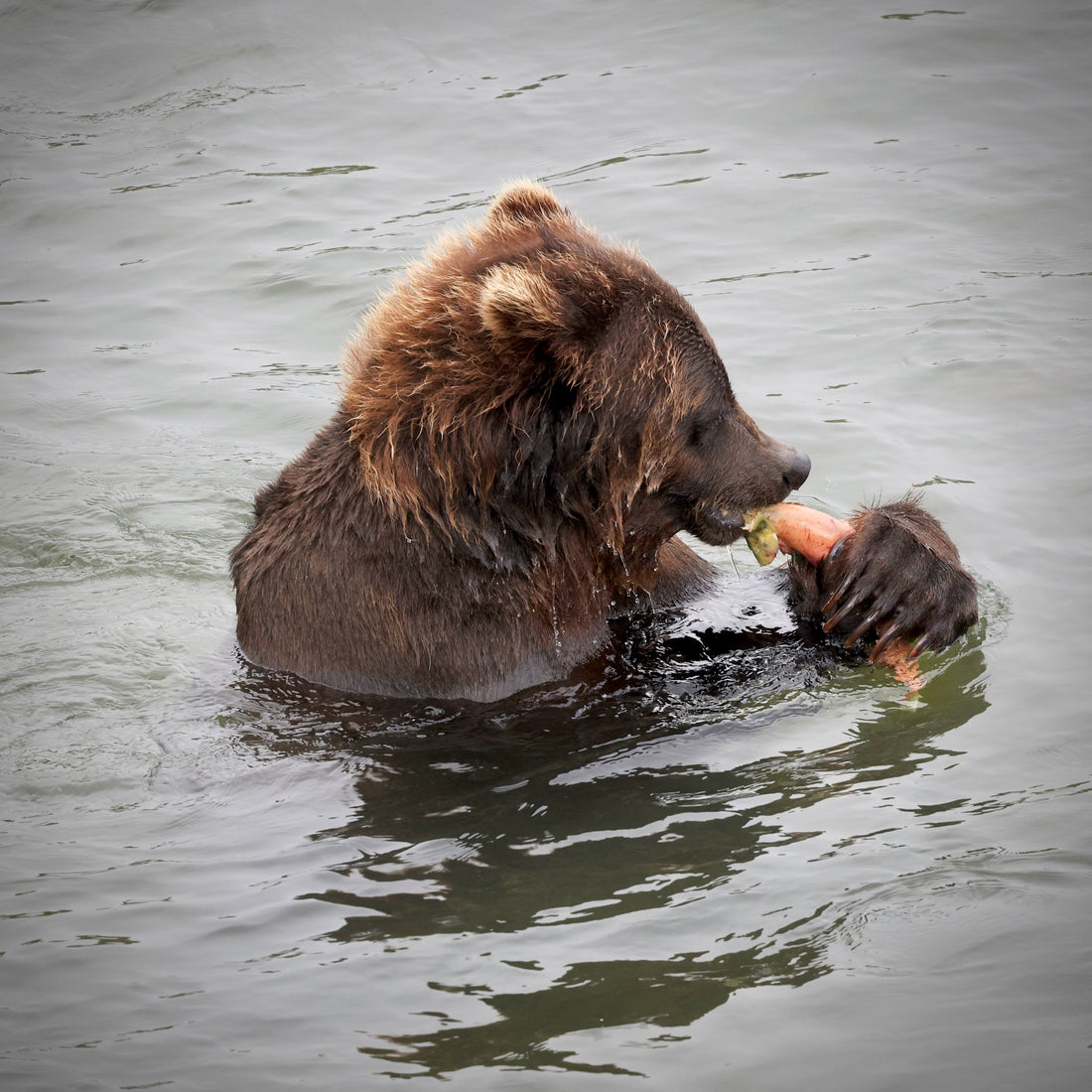
Heading to Grizzly Country: To Carry or Not to Carry
Share
There’s something undeniably alluring about fly fishing in grizzly country. Maybe it’s the untamed landscapes, the solitude, or the promise of trophy trout in waters few anglers ever reach. But with wild places come wild risks, and the presence of grizzly bears adds a layer of gravity to every cast.
Whether you’re venturing into Montana’s Bob Marshall Wilderness, the Yellowstone backcountry, or the upper reaches of British Columbia, the question looms large: Should you carry a firearm?

It’s a personal decision—one shaped by experience, comfort, and preparation. Let’s break down the realities, options, and ethics surrounding this choice.
Understanding the Risk
Grizzly encounters on the river are rare, but they do happen. Bears follow waterways just like anglers do, and a surprise meeting on a narrow trail or bend in the stream can turn tense fast.
Most grizzlies want nothing to do with people. But surprise encounters, a sow with cubs, or a bear habituated to human food can all escalate dangerously.

Preparation isn’t about paranoia—it’s about respect for the environment and the creatures that live there.
Bear Spray: The Standard for a Reason
If you take one piece of bear defense gear into the backcountry, make it bear spray. Non-lethal, highly effective, and backed by decades of research, bear spray has proven time and again to stop aggressive bears.
Pros:
- Lightweight
- Quick to deploy
- Proven effective in close encounters
Cons:
- Wind matters: A strong headwind can blow the spray back toward you, reducing its effectiveness or even incapacitating you momentarily
- Limited range: Most sprays are only effective within 20 to 30 feet—well within a bear’s charge range
- Temperature sensitivity: Spray performance can suffer in extreme cold or if stored improperly

The key is accessibility and practice. A can buried in your pack won’t help when you need it most. Keep it holstered where your casting arm won’t tangle with it, and get familiar with the safety tab and trigger so you can react instinctively.
Firearms: Weighing the Pros and Cons
Some anglers, especially those with backcountry experience or military backgrounds, feel more secure with a firearm. A handgun chambered in .44 Magnum, 10mm, or .45 Colt can serve as a last-resort tool, but with several caveats.

Pros:
- Potentially lethal deterrent
- Psychological comfort
- Longer range than bear spray
Cons:
- Heavier to carry
- Requires significant training to use under stress
- May escalate a situation if used improperly
- Legal restrictions vary by region, especially in national parks or Canadian wilderness
If you choose to carry, get real-world training. Shooting at a paper target at the range does not prepare you for a charging bear at 30 feet.

The Ethics of Carrying
The wilderness is not ours to dominate—it’s a shared space. Carrying a firearm should never be about bravado. It’s about being ready, not reckless. Consider these questions:
- Are you trained and comfortable with the firearm you plan to carry?
- Will it be readily accessible if needed?
- Have you exhausted non-lethal options and deterrents?
Most experts agree: avoiding an encounter is far safer than trying to win one.

Smart Behavior in Grizzly Country
Whether you carry bear spray, a firearm, or both, your behavior is the best defense.
- Make noise: Talk or sing while hiking to avoid surprise encounters.
- Store food properly: Keep your pack clean and odor-free. Use bear canisters or hang food in bear bags well away from camp.
- Stay alert: Watch for fresh scat, tracks, or claw marks on trees.
- Avoid dusk and dawn travel: Bears are more active during these times.
When fishing, be especially mindful if you’re landing or cleaning fish. Blood and scent can linger. Never leave fish remains near the water or trail.

A Personal Decision
Some fly anglers carry every time. Others trust their bear spray and instincts. There’s no universal right answer—only what you’re prepared for and comfortable with.
Before you head into grizzly country, ask yourself:
- Am I prepared to use what I carry?
- Do I know the laws in the area I’m entering?
- Am I putting myself or the bear at unnecessary risk?

Your decision should come from a place of respect for the land, the animals, and your own safety.
Final Cast
Fly fishing in bear country is one of the purest, most rewarding experiences in the sport. It’s not without risk, but neither is crossing a slick boulder midstream or hiking into high-alpine lakes. The key is preparation.
Carry what you need to feel confident—but not invincible. Understand the land you’re in. Know your tools. And remember: you’re a guest in wild country.
